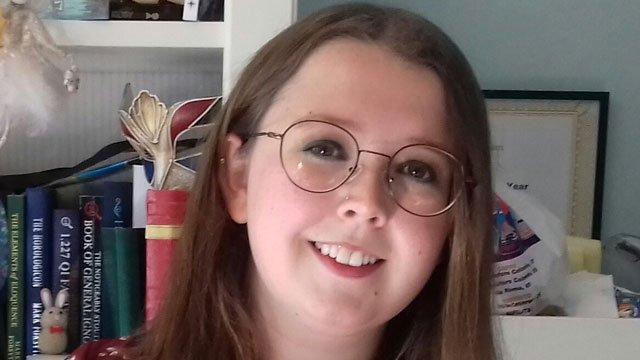Cambridge offers places only for deprived
- Published
- comments
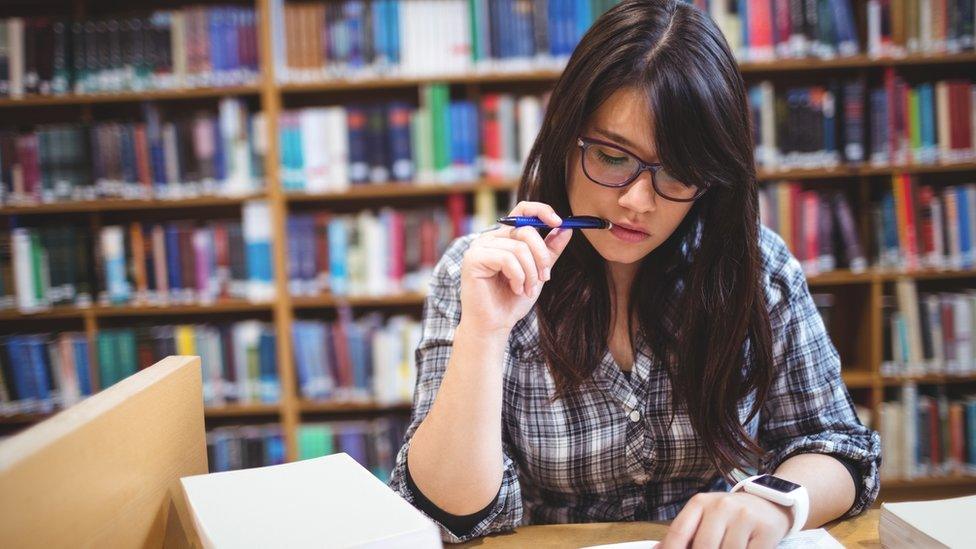
Cambridge University is to offer "second chance" places after A-level results for the first time this summer, in a deliberate bid to increase the number of disadvantaged students.
There will be about 100 places available but only deprived students from the UK will be allowed to apply.
The university has faced accusations of being socially exclusive.
Cambridge says the scheme reflects its wish to recruit more disadvantaged youngsters - but it is not a "quota".
The prestigious university has been attacked for a lack of diversity in its intake of about 3,500 undergraduates each year - such as too few students from poorer backgrounds or from deprived areas.
Last week, BBC News revealed UK students had 500 fewer undergraduate places at Cambridge than a decade ago, while overseas student numbers had risen by 65%.
'Second chance'
In response, Cambridge has announced that it will give a second chance to about 100 disadvantaged youngsters currently at school in the UK.
These will be students who have already applied to the university but have been turned down in the main admissions process, who can now try to get a place after their exam results in the summer.
It will use the "adjustment" process which runs alongside the clearing system after A-level results are published, which allows students with strong results to make a late change in their application.
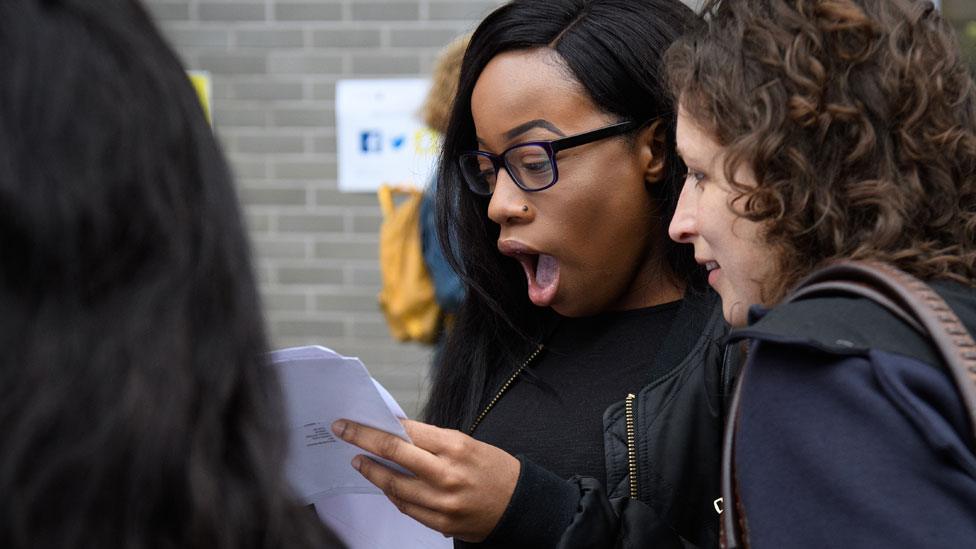
The places will depend on getting high exam results in the summer
The type of disadvantage will include young people living in deprived areas, in places where few people go to university and who are at schools where few people have ever gained places at Cambridge or Oxford.
Ethnicity will not be counted as a factor.
Sir Peter Lampl, who chairs the Sutton Trust social mobility charity, said that Cambridge's plan for "reserving places for disadvantaged young people" was a "step in the right direction".
Students 'reconsidered'
But he said there was still a problem with many talented, poorer pupils not even applying to Oxford or Cambridge, or else having their exam grades under-predicted by their school.
He said that the whole university admissions system should be changed so that all students "apply only after they have received their A-level results".
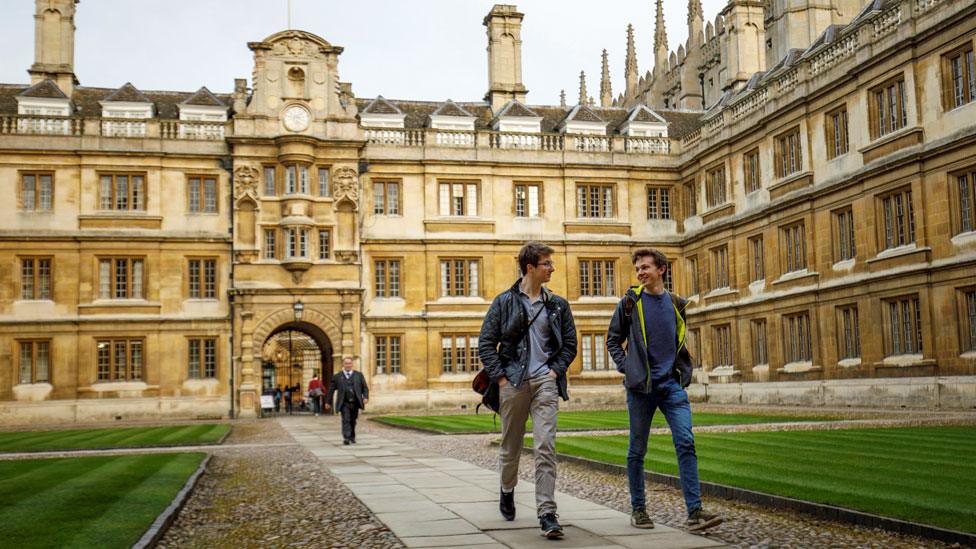
Cambridge has been criticised for having a privileged intake - with figures recently showing that only 2% of students were white and working class.
There have also been concerns that there are too few students from some ethnic minorities.
About 2% of the intake for 2017-18 were black students.
Cambridge says that its plan for reserved places in the summer is specifically about increasing the number of students from "widening participation backgrounds".
The university says where these students, whose original applications were rejected, "go on to achieve outstanding results, we want to open up the possibility for them to be reconsidered".
Facing obstacles
Rae Tooth, chief executive officer of the Villiers Park social mobility charity, backed the scheme but said universities "need to become better at identifying and nurturing potential wherever it is".
She said: "Results achieved by students from less advantaged backgrounds are not always reflective of their huge motivation or their ability.
"Often they face obstacles that are outside of their control and limit their potential."
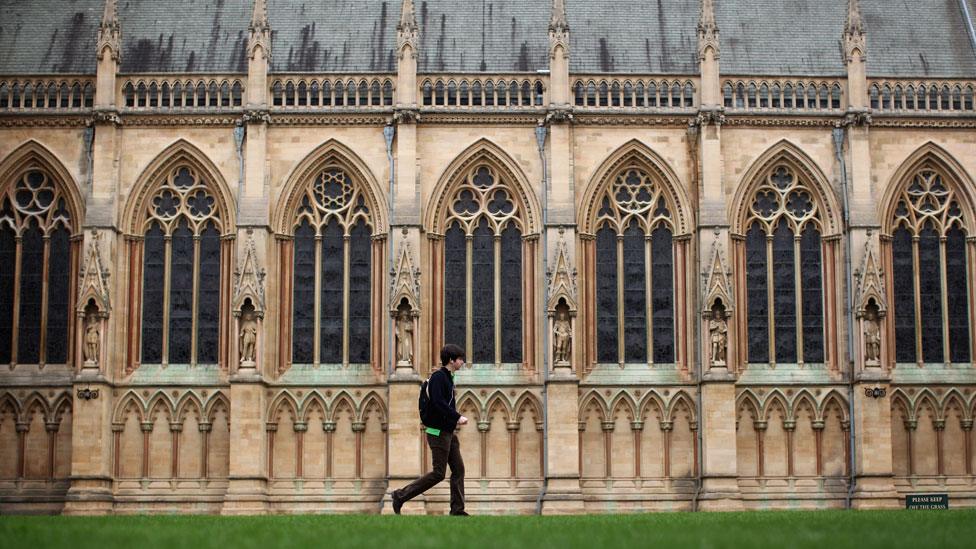
Sam Lucy, Cambridge's director of admissions, said the university received more than 14,000 applications from the UK - and that some students might not have shown "their full academic potential" in applications and interviews.
This new scheme would allow their applications "to be reconsidered as soon as they have their final results", with the prospect of places for those who achieved high results, she said.
"We hope this will have a positive impact in enabling us to admit talented students from under-represented groups who narrowly miss out in the first round," Ms Lucy added.
- Published26 February 2019
- Published7 December 2018
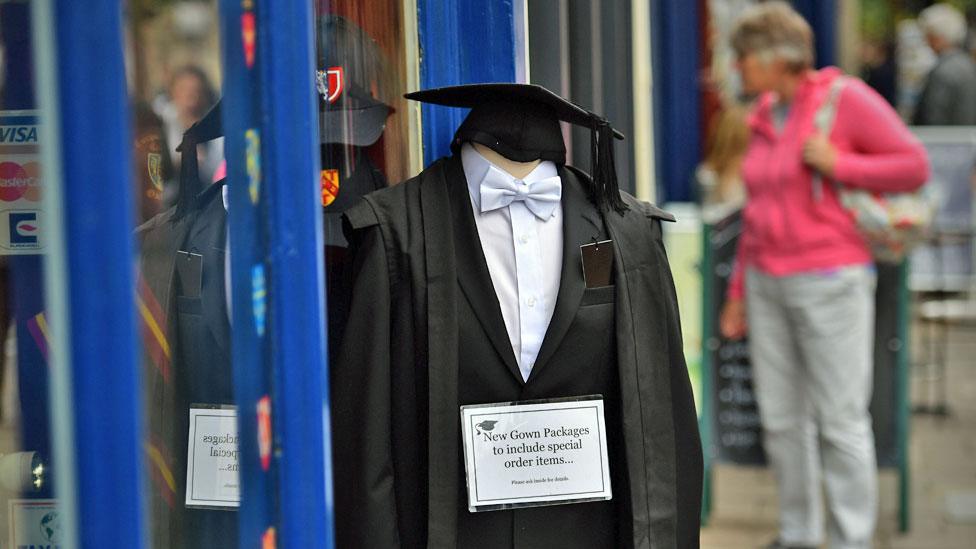
- Published27 September 2017
